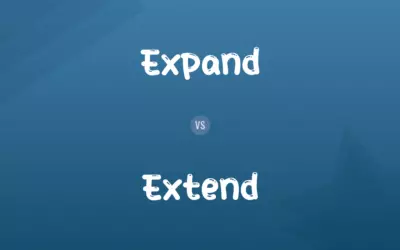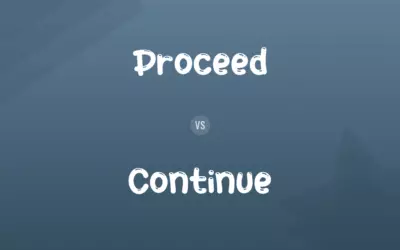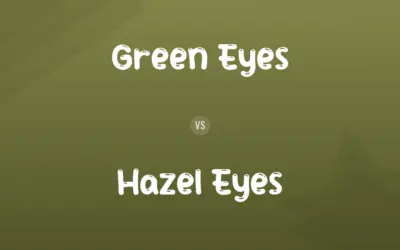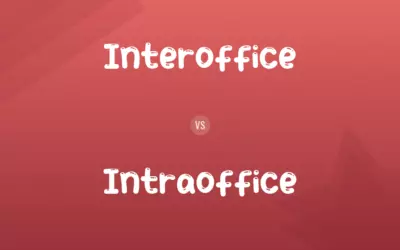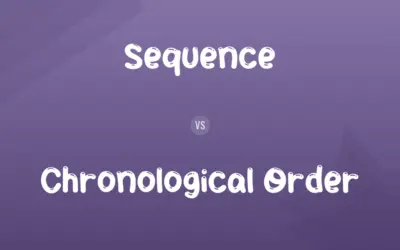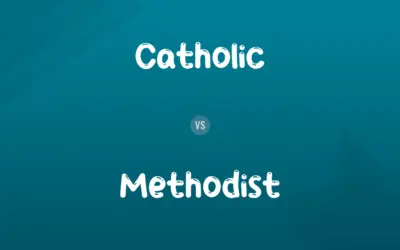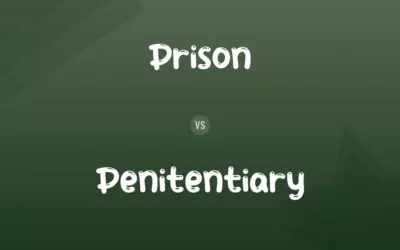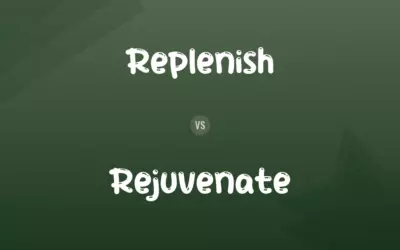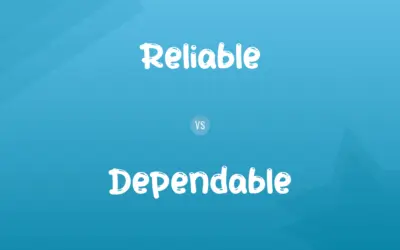Deism vs. Atheism: Difference and Comparison
By Muazma Batool & Muneeza Rehman — Updated on February 27, 2024
Deism is the belief in a creator who does not intervene in the universe, while atheism is the absence of belief in any gods or deities.
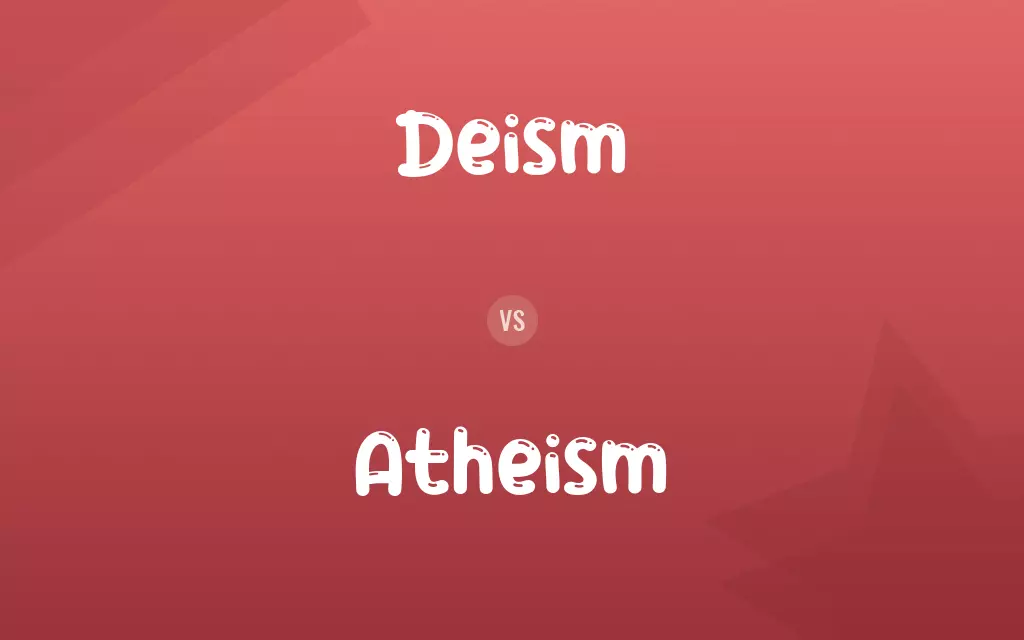
Difference Between Deism and Atheism
Deism and atheism represent two distinct perspectives on the existence and involvement of a higher power. Deists believe in a creator who set the universe in motion but does not interfere with its operation or human affairs, viewing the universe's natural laws as evidence of this creator. Atheists, on the other hand, do not believe in any form of deity or divine being, rejecting religious doctrines in favor of empirical evidence and scientific reasoning.
Muazma Batool
Feb 27, 2024
The concept of God in deism is based on reason and observation of the natural world, rather than revelation or religious texts. Deists often reject organized religion and divine miracles, favoring a philosophical approach that attributes the creation to an impersonal architect. Atheism ranges from passive non-belief to active denial of the existence of gods, with a focus on secular and humanistic principles.
Muazma Batool
Feb 27, 2024
Deism emerged during the Enlightenment as a middle ground between theism (belief in a personal God who intervenes in human affairs) and atheism. It attracted thinkers who sought to reconcile belief in God with emerging scientific discoveries. Atheism, while also benefiting from the Enlightenment's emphasis on reason, takes a more definitive stance against theism by denying the existence of any deity.
Muazma Batool
Feb 27, 2024
Both deism and atheism criticize the anthropomorphic depiction of gods found in many religions and question the validity of religious texts and miracles. However, deism maintains a belief in a distant creator, whereas atheism sees no need to posit such a being to explain the universe.
Lucas
Feb 27, 2024
Despite their differences, both deists and atheists often advocate for freedom of thought, skepticism towards dogmatic religions, and the pursuit of knowledge through science and reason. The key distinction lies in the deist's acceptance of a creator versus the atheist's rejection of any divine entities.
Kaitlyn
Feb 27, 2024
Deism vs. Atheism Comparison Chart
Belief in God
Belief in a non-intervening creator
No belief in any gods or deities
Muazma Batool
Feb 27, 2024
View on Religion
Often rejects organized religion and miracles
Rejects religious doctrines and divine claims
Muazma Batool
Feb 27, 2024
Basis of Belief
Reason and observation of the natural world
Empirical evidence and scientific reasoning
Muazma Batool
Feb 27, 2024
Philosophical Origin
Enlightenment, seeking rationalism over tradition
Varied, with strong ties to rationalism and skepticism
Lucas
Feb 27, 2024
Role of God
Creator who does not interfere in the universe
No role or existence of a deity
Muazma Batool
Feb 27, 2024
Deism vs. Atheism Definitions
◉Deism
Emphasizes morality and ethics derived from nature.
Deists argue that ethical principles can be discerned through the study of the natural world.
Elijah
Feb 27, 2024
◉Atheism
The absence of belief in gods or deities.
Atheism asserts that there is no empirical evidence to support the existence of any gods.
Lucas
Feb 27, 2024
◉Deism
A philosophy that rejects divine revelation and miracles.
Deism advocates for a natural religion based on reason and the observation of the cosmos.
Nolan
Feb 27, 2024
◉Atheism
Often associated with secular and humanistic principles.
Many atheists advocate for ethics and morality grounded in humanism and rational thought.
Leo
Feb 27, 2024
◉Deism
Regards the universe's complexity as evidence of a creator.
Deists see the order and laws of the universe as indications of a designing intelligence.
Lucas
Feb 27, 2024
◉Atheism
Emphasizes scientific inquiry and skepticism.
Atheism encourages questioning and scientific skepticism in the pursuit of knowledge.
Leo
Feb 27, 2024
◉Deism
Belief in a creator who does not intervene in the universe.
Thomas Jefferson's views leaned towards deism, emphasizing reason and the laws of nature.
Olivia
Feb 27, 2024
◉Atheism
Rejects religious texts as divine authority.
Atheists critique the Bible and other holy books as historical documents rather than divine revelation.
Elijah
Feb 27, 2024
◉Deism
Distances itself from traditional religious practices.
Deism dismisses the rituals and dogmas of organized religions as man-made constructions.
Lucas
Feb 27, 2024
◉Atheism
Ranges from passive non-belief to active denial of gods.
Some atheists simply lack belief in gods, while others actively argue against theism.
Kaitlyn
Feb 27, 2024
◉Deism
A religious belief holding that God created the universe and established rationally comprehensible moral and natural laws but does not intervene in human affairs through miracles or supernatural revelation.
Muazma Batool
May 03, 2023
◉Deism
A philosophical belief in the existence of a god (or goddess) knowable through human reason; especially, a belief in a creator god unaccompanied by any belief in supernatural phenomena or specific religious doctrines.
Muazma Batool
May 03, 2023
◉Atheism
(narrowly) Belief that no deities exist (sometimes including rejection of other religious beliefs).
Muazma Batool
May 03, 2023
◉Deism
Belief in a god who ceased to intervene with existence after acting as the cause of the cosmos.
Muazma Batool
May 03, 2023
◉Atheism
(broadly) Rejection of belief that any deities exist (with or without a belief that no deities exist).
Muazma Batool
May 03, 2023
◉Deism
The doctrine or creed of a deist; the belief or system of those who acknowledge the existence of one God, but deny revelation.
Muazma Batool
May 03, 2023
◉Atheism
(very broadly) Absence of belief that any deities exist (including absence of the concept of deities).
Muazma Batool
May 03, 2023
◉Deism
the form of theological rationalism that believes in God on the basis of reason without reference to revelation
Muazma Batool
May 03, 2023
◉Atheism
(historical) Absence of belief in a particular deity, pantheon, or religious doctrine (notwithstanding belief in other deities).
Muazma Batool
May 03, 2023
◉Atheism
The disbelief or denial of the existence of a God, or supreme intelligent Being.
Atheism is a ferocious system, that leaves nothing above us to excite awe, nor around us to awaken tenderness.
Atheism and pantheism are often wrongly confounded.
Muazma Batool
May 03, 2023
Deism vs. Atheism Frequently Asked Questions
What is atheism?
Atheism is the lack of belief in any gods or deities, emphasizing empirical evidence and scientific reasoning over religious faith.
Muazma Batool
Feb 27, 2024
How do deism and atheism view organized religion?
Both deism and atheism are critical of organized religion, but deism maintains a belief in a creator, while atheism rejects all notions of divinity.
Muazma Batool
Feb 27, 2024
Can deists be religious?
While deists believe in a creator, they often reject the rituals and dogmas of organized religions, favoring a more personal and philosophical approach to belief.
Muazma Batool
Feb 27, 2024
Do atheists believe in morality?
Yes, atheists can and do believe in morality, often grounding ethical principles in humanism, rational thought, and the well-being of society rather than divine command.
Muazma Batool
Feb 27, 2024
What distinguishes deism from theism?
Deism differs from theism in that deists believe in a creator who does not intervene in the universe or human affairs, whereas theists believe in a personal God who interacts with humanity.
Lucas
Feb 27, 2024
What do deists believe about the afterlife?
Deist beliefs about the afterlife can vary since deism focuses more on the existence of a creator and less on specific doctrines. Some deists may believe in an afterlife based on moral reasoning, while others may not.
William
Feb 27, 2024
Can a person be both a deist and an atheist?
No, because deism involves belief in a creator, albeit non-intervening, while atheism is characterized by the absence of belief in any deity, making the positions mutually exclusive.
Leo
Feb 27, 2024
What is deism?
Deism is the belief in a creator who does not intervene in the universe, with a focus on reason and the natural world as evidence of this creator.
Muazma Batool
Feb 27, 2024
Is atheism just a lack of belief or an active disbelief?
Atheism encompasses both a passive lack of belief in gods (agnostic atheism) and an active disbelief or denial of the existence of any gods (gnostic atheism).
Elijah
Feb 27, 2024
How did the Enlightenment influence deism and atheism?
The Enlightenment, with its emphasis on reason, science, and skepticism of authority, significantly influenced both deism and atheism by encouraging a questioning attitude towards traditional religious beliefs and promoting a rational approach to understanding the universe.
Muazma Batool
Feb 27, 2024
Content Creators
Written by
Muazma BatoolAs a content editor, Muazma Batool is not just a grammar guru but a creative mastermind who breathes life into every word. With an eagle eye for detail and a passion for storytelling, she transforms bland text into engaging content that captivates audiences and drives results.
Co-written by
Muneeza RehmanAt Comparisons.wiki, Muneeza skillfully navigates the vast sea of information, ensuring clarity and accuracy as the lead content editor. With a keen eye for detail, she curates every comparison to enlighten and engage readers.







